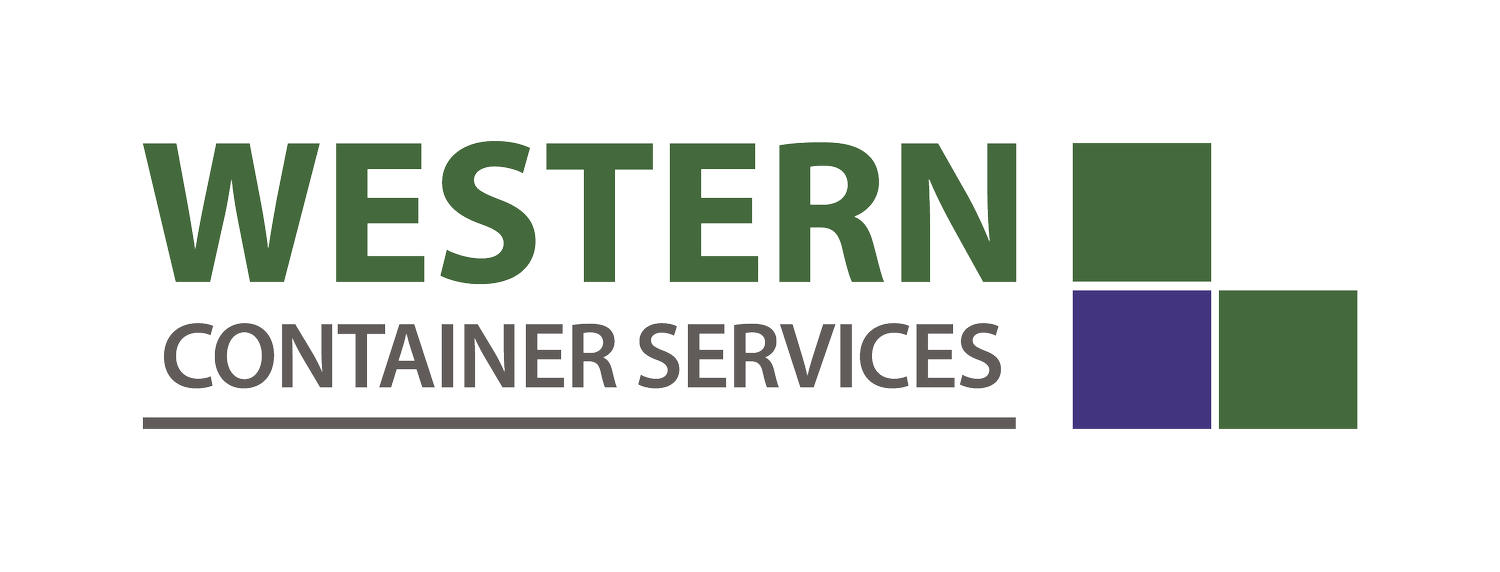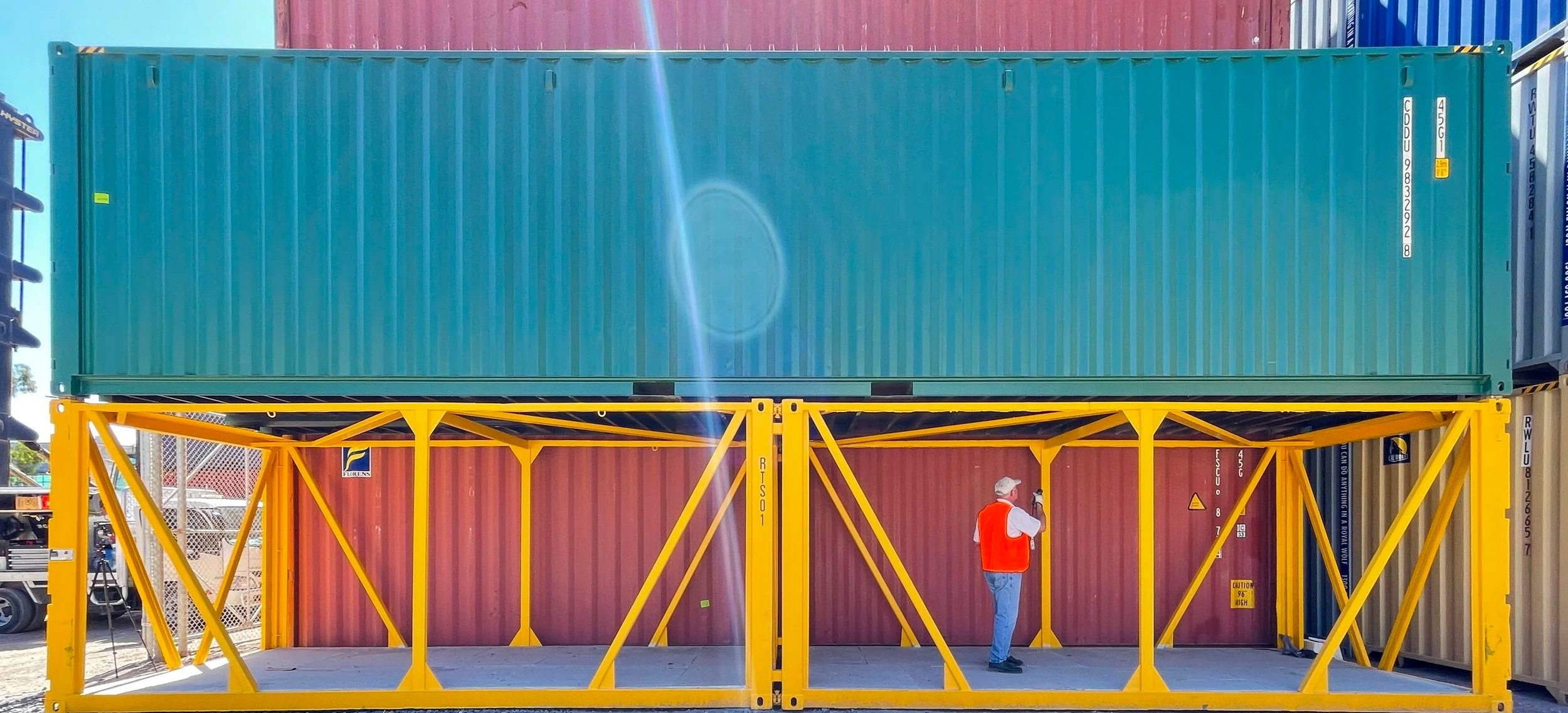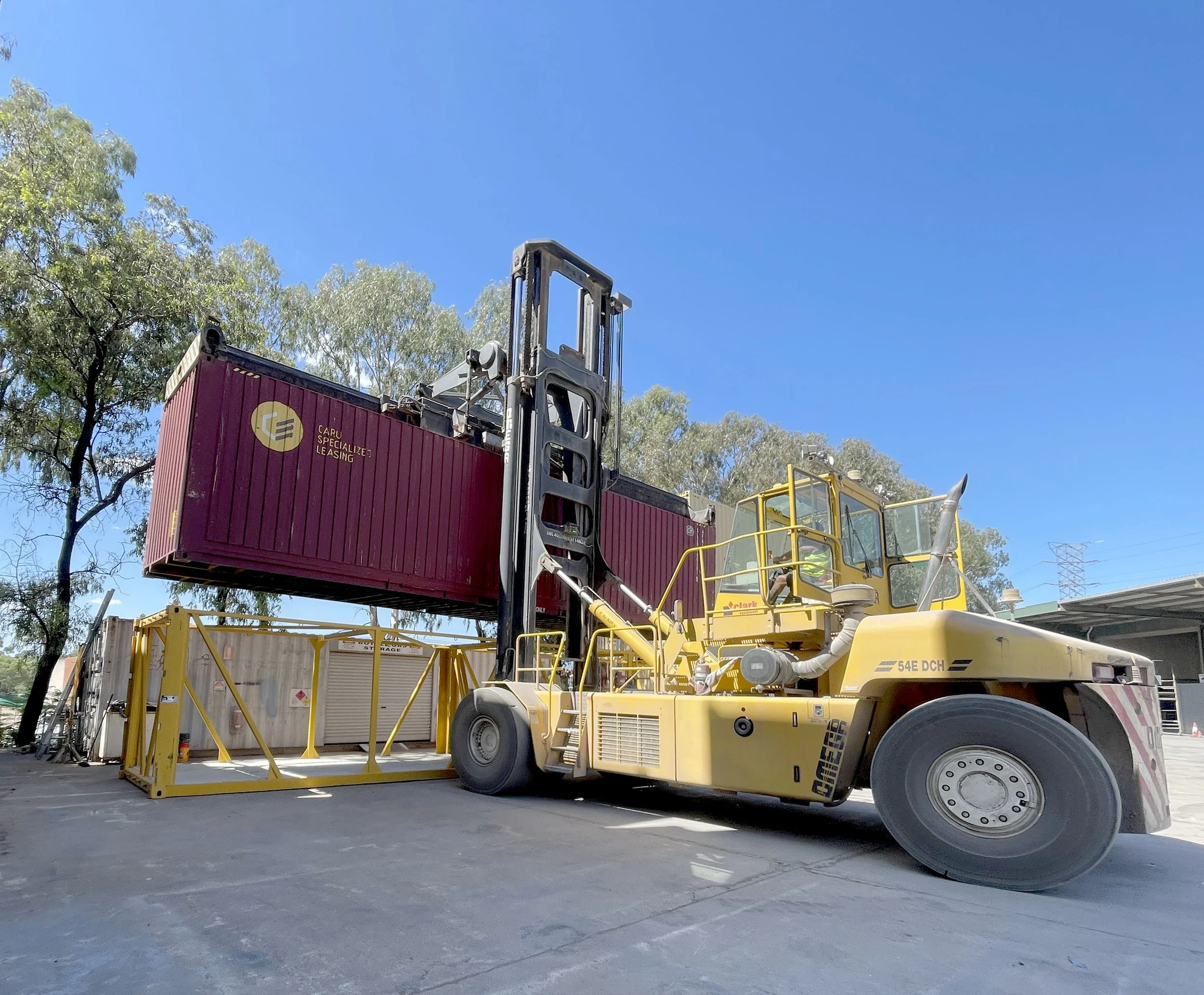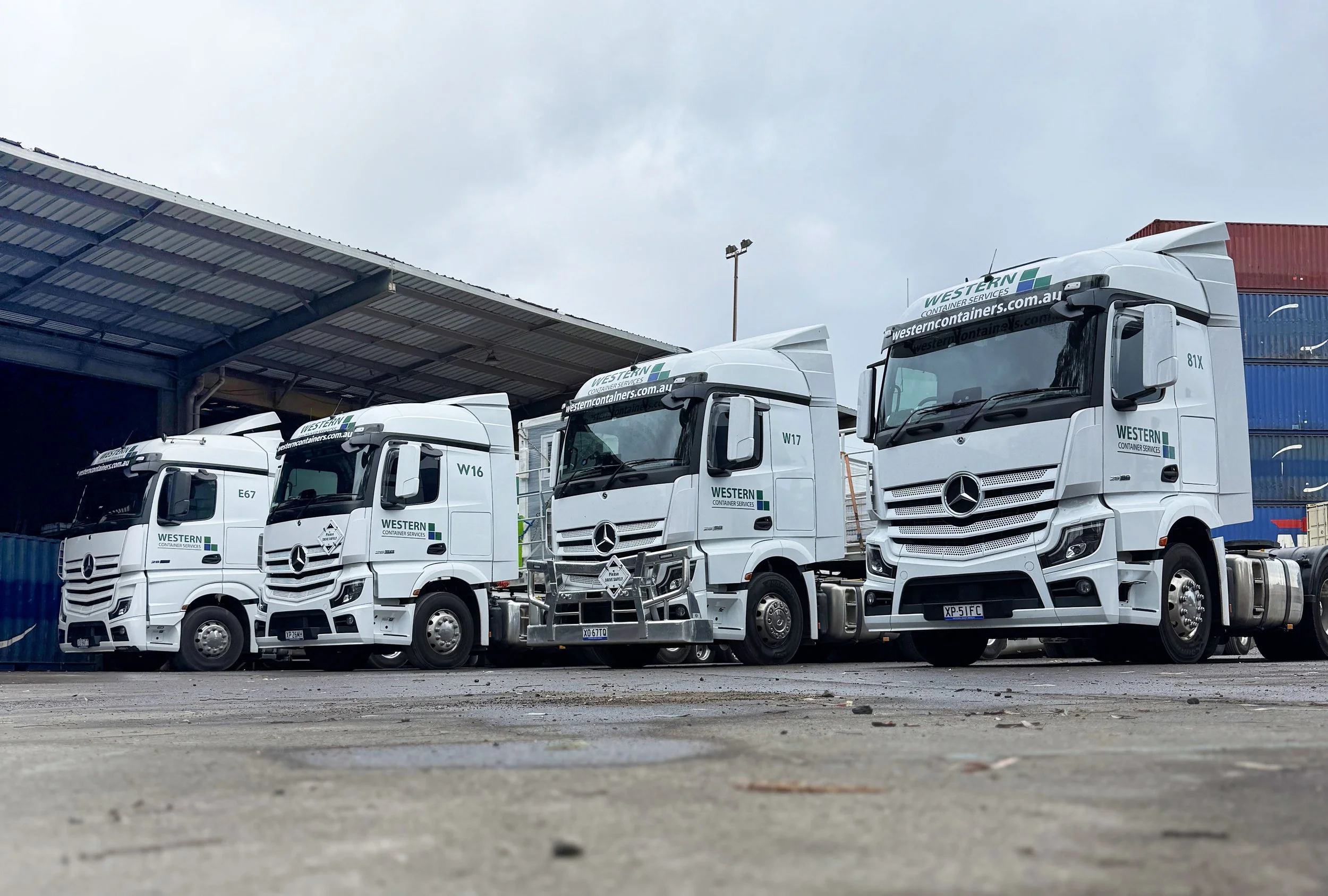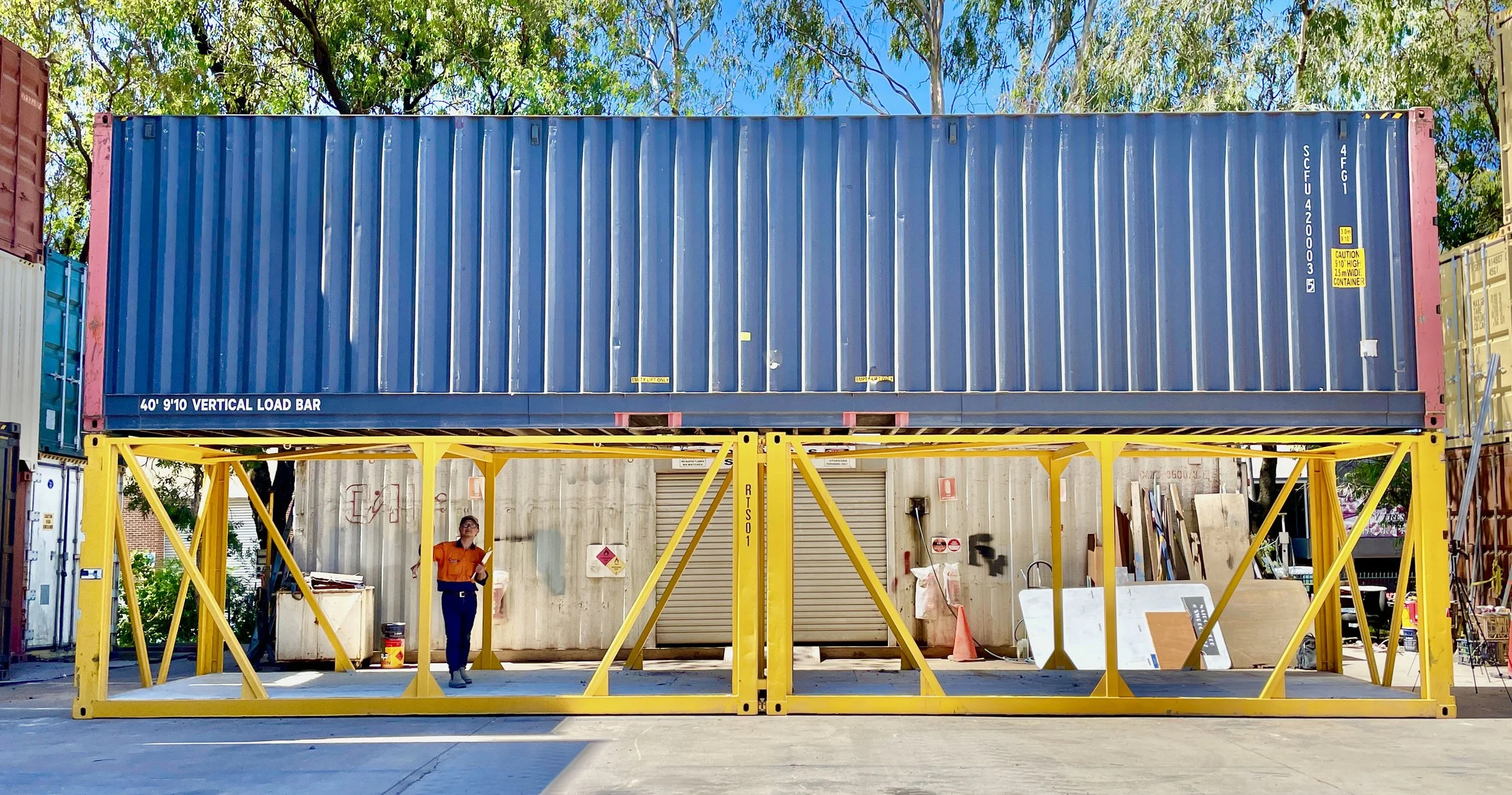RURAL TAILGATE INSPECTION
APPROVED ARRANGEMENT 14.4
One supplier. Zero excuses.
The Container Freight Station & Transport Supplier
That Gives You Back Your Time.
Why rural tailgate inspections matter to you
If you move containers to rural postcodes, you don’t get to choose whether a rural tailgate (RTG) is required – the delivery postcode classification does that for you.
That usually means:
Extra handling at the port or depot
Waiting on inspection capacity
Storage and truck bookings in limbo
Frustrated rural receivers asking for firm ETAs
AA Class 14.4 changes who can do those inspections – and how much control you have over the chain.
What is AA Class 14.4 rural tailgate inspection?
The Department of Agriculture, Fisheries and Forestry (DAFF) has implemented Approved Arrangement (AA) Class 14.4 – Rural tailgate inspection.
Under this arrangement, a Biosecurity Industry Participant (BIP) operating an approved depot (class 1.1 or 1.3 with class 4.3 wash bay) is authorised to:
Perform rural tailgate inspections on certain eligible containers, and
Manage specified biosecurity risks at their site, in accordance with DAFF conditions.
In practice, that means eligible sea containers destined for unpack in a rural-classified postcode can be inspected at an AA14.4 site instead of relying solely on departmental officers at the wharf.
The initial inspection must be conducted on:
a truck with a skeletal trailer that allows good visibility under the container, or
a truck with a flatbed trailer with height extended twist locks where the container is raised above the flatbed platform to allow good visibility under the container, or
a sea container inspection stand that complies with the specifications for sea freight container inspection stands.
Western Container Services – your AA14.4 partner in Sydney
Western Container Services operates a full-service Container Freight Station in Strathfield South, just 23 km from Port Botany and close to Enfield and Chullora.
1300 FCL LCL
At the Western Container Services CFS site, we combine:
AA Class 14.4 rural tailgate inspection
77G underbond storage
Class 4.3 wash bay facilities
BMSB fumigation capability
Powered reefer storage
Our own transport fleet to complete the delivery
For freight forwarders and importers, that means:
One supplier managing inspection, handling and delivery
Less time on the wharf and reduced storage risk
Fewer handovers and points of failure
Clear accountability – no finger-pointing between depot, carrier and service providers
How a rural tailgate works at Western Containers
When a container is directed for rural tailgate inspection and routed to Western Container Services:
Direction and arrival
The container is directed to our AA14.4 site via DAFF or a Class 19 accredited person using the appropriate concern type (internal and external, or external only).
External inspection
We inspect the external surfaces of the container, including doors, seals, roof, sides and undercarriage, looking for soil, plant material, seeds, insects or other biosecurity risk material.
Internal inspection (where required)
For most dry and non-hard-frozen reefer containers, we open the doors and inspect the floor area near the doorway and visible internal surfaces for signs of contamination.
Cleaning and re-inspection (if needed)
If we detect contamination that we are permitted to manage, we move the container to our wash bay, clean it, and re-inspect to confirm it is free of visible biosecurity risk material, as required under Class 14.4 conditions.
Outcome and release
Where the inspection is satisfactory and no further departmental action is required, the container can be released from biosecurity control in line with DAFF requirements, and we can load it directly to our trucks for onward delivery.
1300 FCL LCL
One supplier. Zero excuses.
The Container Freight Station & Transport Supplier
That Gives You Back Your Time.
What we can and cannot handle under AA14.4
Under AA Class 14.4, we are authorised to perform rural tailgate inspections on eligible:
Dry containers
Reefers (with specific conditions for hard-frozen cargo)
ISO tanks and open-tops, subject to DAFF scope and direction type
In scope (examples):
Containers destined for unpack in a rural-classified postcode that require a rural tailgate to address rural concerns only
Containers that are impediment-free
Containers where the commodity has been assessed and released on documentation by DAFF or accredited persons (where permitted)
Containers where mandatory treatment is required before rural tailgate, once that treatment has been completed in line with import conditions
Out of scope (examples):
Containers where the goods require a departmental commodity inspection or verification as part of the biosecurity conditions
Prefabricated office/accommodation units built as or shipped within containers – these continue to be managed under the relevant BICON case and require a DAFF rural tailgate if destined for rural delivery
Any container types or scenarios excluded by current Class 14.4 conditions
Where we identify biosecurity risk material that we are not authorised to manage, or any serious concern within the container, we:
Secure the container, and
Notify DAFF immediately, so a departmental biosecurity officer can undertake further inspection and direction, in line with Class 14.4 requirements.
Why forwarders route rural work through Western Container Services
Forwarders and brokers use Western Container Services for rural tailgates because:
You get AA14.4, 77G, wash, fumigation, reefer power and transport in one place
You’re dealing with one partner from wharf to rural receiver
You can give clients cleaner, more reliable ETAs for rural deliveries
You spend less time explaining delays created by capacity constraints you don’t control
We don’t pretend AA14.4 removes every variable – but it does mean you’re no longer planning your day around “maybe there’ll be a slot”.
1300 FCL LCL
One supplier. Zero excuses.
The Container Freight Station & Transport Supplier
That Gives You Back Your Time.
Talk to us about routing your rural containers
If you’re moving containers to rural postcodes and you’re still using a depot that can’t perform AA14.4 inspections in-house or doesn’t control its own trucks, you are carrying complexity you don’t need.
Get in touch with our team to discuss:
Using Western Container Services as your primary AA14.4 rural tailgate site in Sydney
Integrating rural tailgates into your normal import workflow
How our “one supplier, zero excuses” model can reduce noise on your rural lanes
